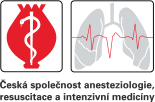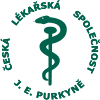Anest. intenziv. Med. 2011;22(4):216-226
Does mild therapeutic hypothermia have the same influence on patients' neurological outcome following in-hospital and out-of-hospital resuscitation due to shockable and non-shockable rhythms?Intensive Care Medicine - Original Paper
- 1 Klinika anesteziologie, resuscitace a intenzivní medicíny Fakultní nemocnice Olomouc
- 2 Dept. of Anesthesia and Intensive Care, Ringerike Hospital (Vestre Viken HF), Hønefoss, Norway
Objective:
To assess the impact of therapeutic hypothermia on patients' neurological outcome after out-of- and in-hospital cardiopulmonary resuscitation for shockable and non-shockable rhythms.
Design:
A comparative, non-randomized study.
Setting:
A University Hospital ICU.
Methods:
We compared a group of patients admitted to the ICU following cardiopulmonary resuscitation in 2010 to a group of patients admitted in 2006. Both groups were further divided into two subgroups: resuscitated for shockable and non-shockable rhythms respectively. Neurological outcome was assessed on discharge from the ICU or the hospital by the Glasgow Outcome Scale.
Results:
Compared to 2006, mortality increased in the 2010 subgroups and the number of patients with favourable neurological outcome decreased. In the subgroup of patients receiving out-of-hospital CPR due to VF the mortality increased by 21% and 17% fewer patients were discharged with GOS 4-5. In the subgroup of patients receiving CPR due to asystole the mortality increased by 59% and 11% fewer patients were discharged with GOS 4-5. After in-hospital CPR due to shockable and non-shockable rhythms the mortality increased by 43% and 38% respectively. Regardless of rhythm, 19% fewer patients were discharged with GOS 4-5.
Conclusion:
In contrast to studies by other authors we did not find a benefit of therapeutic hypothermia on the neurological outcome of patients after resuscitation for shockable rhythm. It was confirmed that the neurological outcome of patients after resuscitation for non-shockable rhythm was either unchanged or worse in 2010. This effect may have been influenced by mistakes made when performing therapeutic hypothermia.
Keywords: cardiopulmonary resuscitation; shockable rhythm; non-shockable rhythm; herapeutic hypothermia; body temperature; neurological outcome
Received: March 18, 2011; Accepted: June 20, 2011; Published: August 1, 2011 Show citation
| ACS | AIP | APA | ASA | Harvard | Chicago | Chicago Notes | IEEE | ISO690 | MLA | NLM | Turabian | Vancouver |
References
- Deakin, C. D., Nolan, J. P., Soar, J., Sunde, K., Koster, R. W., Smith, G. B., Perlina, G.D. European Resuscitation Council Guidelines for Resuscitation 2010 Section 4. Adult advanced life support. Resuscitation, 2010, 81, 10, p. 1305-1352. Dostupný také z www: http://www.erc.edu/index.php/doclibrary/en/209/1.
 Go to original source...
Go to original source...  Go to PubMed...
Go to PubMed... - Sahuquillo, J., Vilalta, A. Cooling the injured brain: how does moderate hypothermia influence the pathophysiology of traumatic brain injury. Curr. Pharm. Des., 2007, 13, 22, p. 2310-2322.
 Go to original source...
Go to original source...  Go to PubMed...
Go to PubMed... - Polderman, K. H., Herold, I. Therapeutic hypothermia and controlled normothermia in the intensive care unit: practical considerations, side effects, and cooling methods. Crit. Care Med., 2009, 37, p. 1101-1120.
 Go to original source...
Go to original source...  Go to PubMed...
Go to PubMed... - Tortorici, M. A., Kochanek, P. M., Poloyac, S. M. Effects of hypothermia on drug disposition, metabolism, and response: a focus of hypothermia-mediated alterations on the cytochrome P450 enzyme system. Crit. Care Med., 2007, 35, p. 2196-204.
 Go to original source...
Go to original source...  Go to PubMed...
Go to PubMed... - Gál, R., Slezák, M., Zimová, I., Čundrle, I., Ondrášková, H., Seidlová, D. Therapeutic hypothermia after out-of-hospital cardiac arrest with the target temperature 34-35 °C. Bratislava Medical Journal - Bratislavské lékarske listy, 2009, 110, 4, p. 222-225.
- Samson, C., Rogers, M. A., Dahl, J., Kellermann, A. L. Predictors of survival from out-of-hospital cardiac arrest: a systematic review and meta-analysis. Cirk. Cardiovasc. Qual. Outcomes, 2010, 3, 1, p. 63-81.
 Go to original source...
Go to original source...  Go to PubMed...
Go to PubMed... - Shinozaki, K., Oda, S., Sadahiro, T. et al. Blood ammonia and lactate levels on hospital arrival as a predictive biomarker in patients with out-of-hospital cardiac arrest. Resuscitation, 2011. Dostupný také z www: http://www.resuscitationjournal.com/article/S0300-9572%2810%2901061-0/fulltext.
- Jennett, B., Bond, M. Assessment of outcome after severe brain damage: A Practical Scale. Lancet, 1975, p. 480-484.
 Go to original source...
Go to original source...  Go to PubMed...
Go to PubMed... - Bernard, S., A., Gray, T., W., Buist, M., D. et al. Treatment of Comatose Survivors of Out-of hospital cardiac arrest with induced hypothermia. N. Engl. J. Med., 2002, 346, p. 557-563.
 Go to original source...
Go to original source...  Go to PubMed...
Go to PubMed... - Hypothermia after Cardiac Arrest Study Group Mild therapeutic hypothermia to improve the neurologic outcome after cardiac arrest. N. Engl. J. Med., 2002, 346, 8, p. 549-556. Dostupné také z WWW: http://www.nejm.org/doi/full/10.1056/NEJMoa012689#t=articleTop
- Belliard, G., Catez, E., Charron, C. et al. Efficacy of therapeutic hypothermia after out-of-hospital cardiac arrest due to ventricular fibrillation. Resuscitation, 2007, 75, 2, p. 252-259.
 Go to original source...
Go to original source...  Go to PubMed...
Go to PubMed... - Arrich, J. Hypothermia After Cardiac Arrest Registry Study Group. Clinical application of mild therapeutic hypothermia after cardiac arrest. Crit. Care Med., 2007, 35, 4, p. 1041-1047.
 Go to original source...
Go to original source...  Go to PubMed...
Go to PubMed... - Don, C. W., Longstreth, W. T. Jr, Maynard, C. et al. Active surface cooling protocol to induce mild therapeutic hypothermia after out-of-hospital cardiac arrest: a retrospective before-and-after comparison in a single hospital. Crit. Care Med., 2009, 37, 12, p. 3062-3069.
 Go to original source...
Go to original source...  Go to PubMed...
Go to PubMed... - Bernard, S. Hypothermia after cardiac arrest: expanding the therapeutic scope. Crit. Care Med., 2009, 37, 7 Suppl., p. 227-233.
 Go to original source...
Go to original source...  Go to PubMed...
Go to PubMed... - Kuboyama, K., Safar P. et al. Delay in cooling negates the beneficial effect of mild resuscitative cerebrál hypothermia after cardiac arrest in dogs: a prospective, randomized study. Crit. Care Med., 1993, 21, 9, p. 1348-1358.
 Go to original source...
Go to original source...  Go to PubMed...
Go to PubMed... - Nolan, J. P., Soar J. Mild therapeutic hypothermia after cardiac arrest: Keep on chilling. Crit. Care Med., 2011, 39, 1, p. 206-207.
 Go to original source...
Go to original source...  Go to PubMed...
Go to PubMed... - Hoedemaekers, C. W. et al. Comparison of cooling methods to induce and maintain normo- and hypothermia in intensive care unit patients: a prospective intervention study. Crit. Care, 2007, 11, 4, p. R91
 Go to original source...
Go to original source...  Go to PubMed...
Go to PubMed... - Nolan, J. P. et al. European Resuscitation Council Guidelines for Resuscitation 2010 Section 1. Executive summary. Resuscitation, 2010, 81, 10, p. 1222. Dostupný také z WWW: http://www.erc.edu/index.php/doclibrary/en/209/1.
 Go to original source...
Go to original source...  Go to PubMed...
Go to PubMed... - Valentin, A. et al. Outcome of cardiopulmonary resuscitation in hospitalized patiens. Resuscitation, 1995, 30, p. 217-221.
 Go to original source...
Go to original source... - Dumas, F., Grimaldi, D., Zuber et al. Is Hypothermia After Cardiac Arrest Effective in Both Shockable and Nonshockable Patients? Insights From a Large Registry. Circulation, 2011, 123, 8, p. 877-886.
 Go to original source...
Go to original source...  Go to PubMed...
Go to PubMed...





